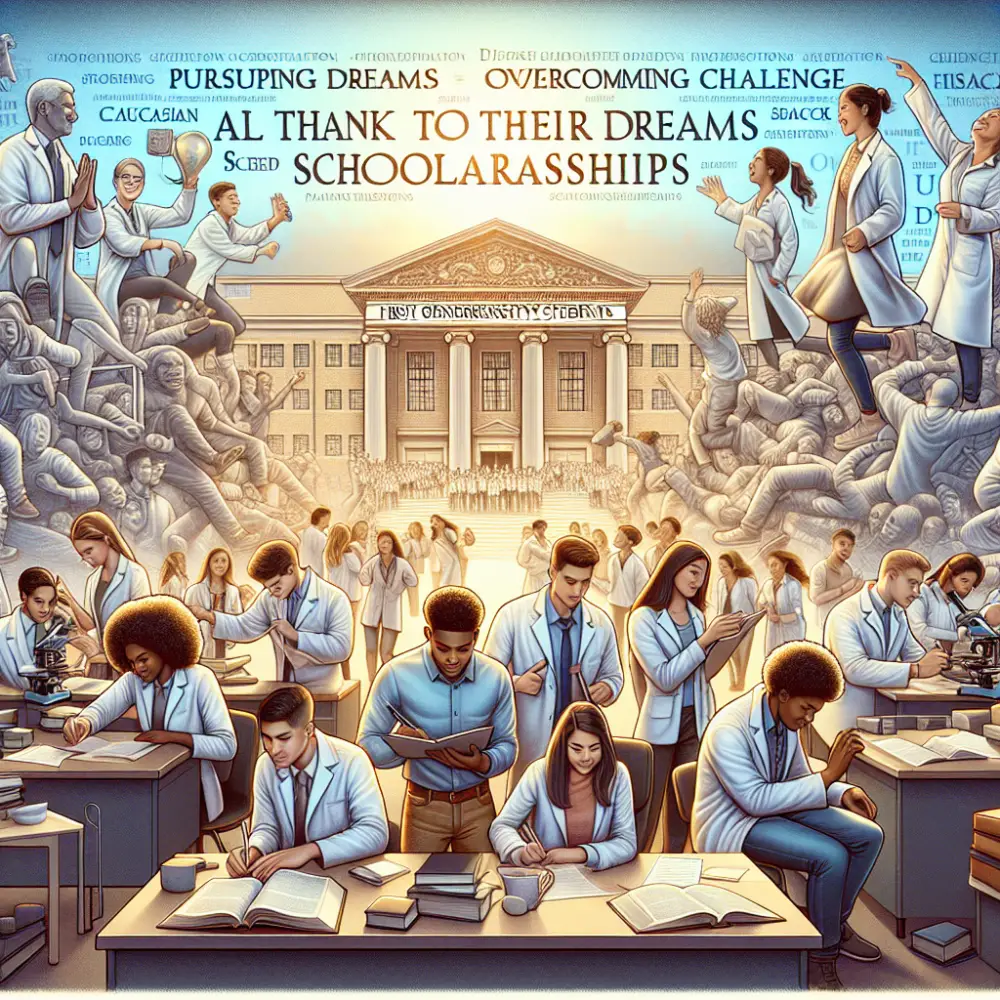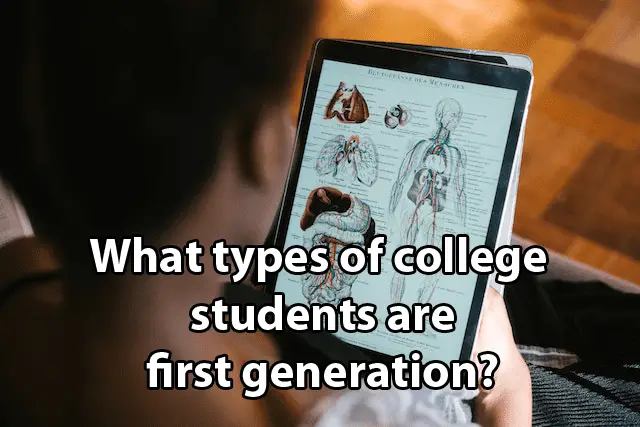
Pursuing Dreams, Overcoming Challenges: Scholarships Empower First-Generation Students
Education is often regarded as the key to unlocking a brighter future. However, for many first-generation students, pursuing higher education can present numerous challenges that can hinder their dreams. Financial barriers, lack of guidance, and limited resources are just a few of the obstacles they face. Fortunately, scholarships have emerged as a powerful tool in empowering these aspiring individuals to overcome these challenges and achieve their goals.
First-generation students are those who are the first in their families to attend college or university. They may come from low-income backgrounds where financial constraints make pursuing higher education seem impossible. Additionally, they often lack the necessary support and guidance required to navigate the complex college application process. These factors contribute to a lower enrollment rate among first-generation students compared to their counterparts.
The Power of Scholarships
Scholarships are undoubtedly game-changers for first-generation students. They provide much-needed financial support that allows these individuals to pursue higher education without being burdened by overwhelming student loan debt. Scholarships can cover tuition fees, textbooks, accommodation, and even living expenses, ensuring that students can focus on their studies instead of constantly worrying about finances.
Beyond financial assistance, scholarships also serve as an affirmation of a student’s potential and abilities. Being awarded a scholarship recognizes their hard work and dedication to overcoming challenges. This recognition acts as a confidence boost and motivates them to continue striving for success despite any obstacles they may face along the way.
Moreover, scholarships often come with additional benefits such as mentorship programs or networking opportunities that foster personal growth and professional development. These resources help bridge the gap between first-generation students and available support systems, ensuring they have access to the guidance and encouragement they need to navigate the unfamiliar territory of higher education.
Breaking Down Barriers
First-generation students face unique challenges that can hinder their pursuit of higher education. Financial barriers are often at the forefront of these obstacles, with limited financial resources making it difficult to afford tuition fees and associated expenses. Scholarships play a crucial role in breaking down these financial barriers by providing the necessary funding to cover educational costs.
Additionally, first-generation students frequently lack the guidance and support systems that their peers may take for granted. They may not have family members or friends who can offer advice on college applications, financial aid, or career paths. Scholarships often provide mentoring programs or connect students with alumni networks who can offer guidance and support throughout their academic journey.
The sense of isolation that many first-generation students experience is another barrier that scholarships can help address. Being the first in their families to pursue higher education can leave them feeling like outsiders in an unfamiliar environment. Scholarships often foster a sense of community among recipients by offering networking events, workshops, or peer support groups where students can connect with others facing similar challenges.
Overcoming Challenges
The journey of a first-generation student is filled with unique challenges that require resilience and determination to overcome. Scholarships empower these students by providing the necessary resources and support to tackle these obstacles head-on.
One significant challenge is navigating the complex college application process. Many first-generation students struggle with understanding how to complete applications, write compelling essays, gather recommendation letters, and submit required documents. Scholarships often offer application assistance or workshops to guide students through this process step-by-step, ensuring they do not miss out on valuable opportunities due to lack of knowledge.
Another common challenge is the difficulty of balancing academics with part-time jobs or family responsibilities. First-generation students may need to work to support their education or contribute to household income, which can strain their ability to excel academically. Scholarships that cover living expenses or offer financial aid packages that reduce the need for outside employment ease this burden and allow students to focus on their studies.
Mental health and well-being are essential factors that can affect a student’s ability to succeed academically. First-generation students often face additional stress and pressure as they navigate uncharted territory and strive to meet the expectations placed upon them. Scholarships that include counseling services or prioritize mental health support ensure that students have access to the resources they need to cope with these challenges and thrive both personally and academically.
Frequently Asked Questions
Q: What are some scholarships available for first-generation students?
A: There are numerous scholarships dedicated specifically to supporting first-generation students. Some examples include:
- The Gates Scholarship
- The Jack Kent Cooke Foundation Scholarship
- The Coca-Cola First Generation Scholarship Program
- The Dell Scholars Program
- The QuestBridge National College Match Program
Q: How can first-generation students find scholarships?
A: First-generation students can begin their scholarship search by exploring resources such as scholarship databases, college financial aid offices, community organizations, and online platforms dedicated to connecting students with scholarship opportunities. It is also essential for them to reach out to mentors, teachers, or guidance counselors for assistance in identifying relevant scholarships.
Q: Can international first-generation students apply for scholarships?
A: Yes, there are scholarships available for international first-generation students. These scholarships may vary depending on the country or institution, so it is crucial for students to research and explore scholarship opportunities specific to their circumstances.

















